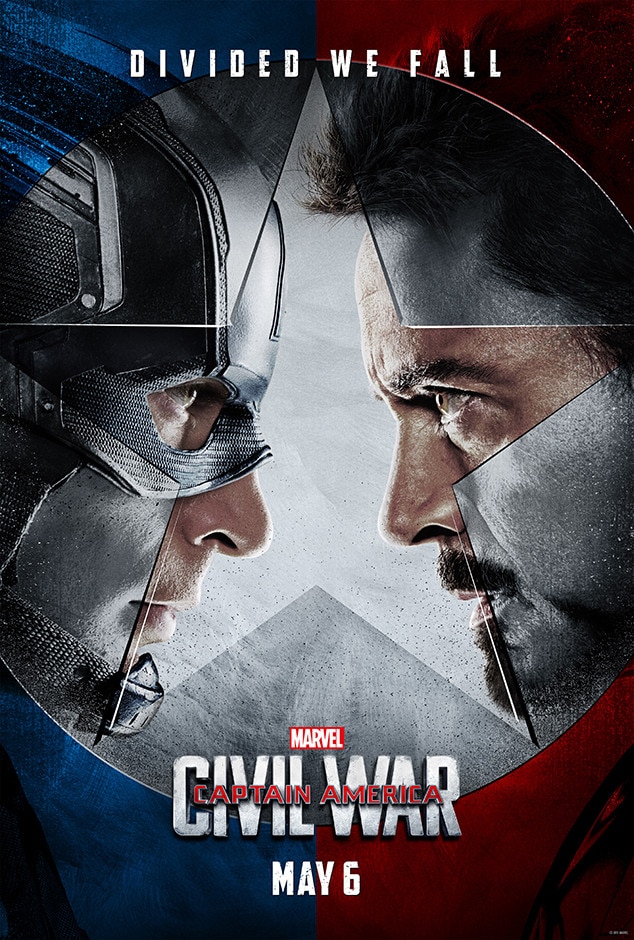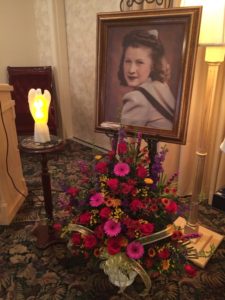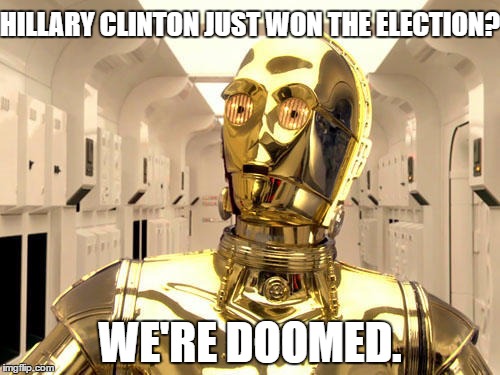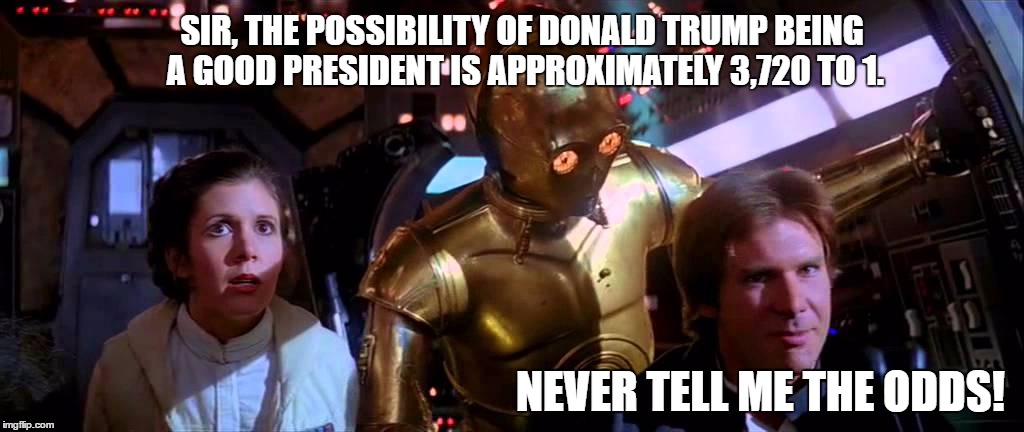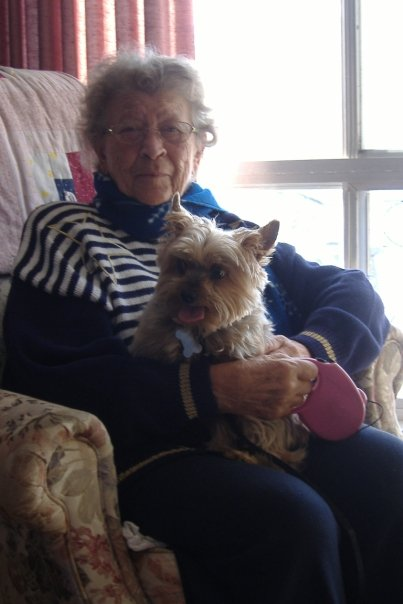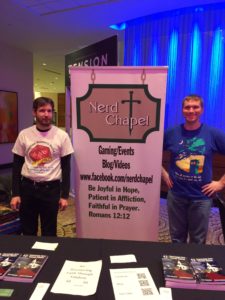
My friend/co-author Eric Anderson, founder of Nerd Chapel, tabled at a convention last weekend, though it wasn’t a comic-con. No, it was the Michigan Statewide Youth Convention in Kalamazoo, Michigan. Eric got a table there to promote Nerd Chapel, part of which was selling our devotional, 42: Discovering Faith Through Fandom. He asked to attend to help him out. I was only able to make it Saturday (the event ran from Friday to Sunday), but Saturday was when most of the action happened.
It took me a little longer than I expected to arrive (closer to two hours instead of 90 minutes), but that gave me extra time to listen to the audiobook of That Hideous Strength by C.S. Lewis, which I’d been meaning to read for a while. I arrived at the Radisson Hotel in downtown, and after fighting with way too many one-way streets (and I thought downtown Fort Wayne had too many), I barely stepped out of my car before an older black woman came up to me begging me to give her money for gas so she could get back to Gary, Indiana, going on about loving Jesus and thanking Him like a southern Baptist. Against my better judgment, I gave her some money. She said she’d pay me back through the mail the following Monday, so I wrote my address on one of my bookmarks and gave it to her. Honestly, I feel like I got suckered. I’m going soft.
Anyway, I walked inside and connected with Eric. Since it was lunchtime, we explored the area looking for a place to eat. We had a short time because he was holding a session at 2pm about using your passions missionally. We tried Subway, but the line was too long. Then we walked a few blocks to a local McDonald’s.
I watched the table for a bit while Eric was downstairs for the session. He asked me to join him a little later because he wanted me to talk a bit about the work I’d done as a Christian in the publishing industry. I mostly stood to the side while Eric did most of the talking, which is a switch for us, usually. I spoke about meeting a young would-be writer at Gen-Con a few years ago at my table and talking with him for almost 45 minutes. Then a bit later he gave me the floor to talk about working in the publishing industry. Eric closed the session with a Q&A. First, he asked if anyone had any serious questions, of which there were few, and then he opened it up to “nerd” questions, of which there were many. A few students even specifically asked me questions about writing. I spent a half-hour talking with several students about comics, Star Wars, and anime afterward.
The rest of the afternoon was relatively quiet. I spoke with some of the people from the other ministries around us. Eric and I had dinner at the fancy bar and grill in the hotel (courtesy of the convention). When the main session was about to start at 7pm, lots of students and youth leaders came to us wanting to learn more about Nerd Chapel or buy books. They said they loved what we were doing and that they’d never heard of ministries like this. Eric and I were encouraged to hear that.
It was once again quiet during the main session. Eric ran lights during it, while I stayed outside the auditorium to watch the table and do some writing. Then for about 30 minutes afterward at 9pm, I was talking with people and selling books. I even met a teenage girl who was once part of a nerd ministry/club/Facebook group with us. She had pink hair to boot.
With that, I joined Eric downstairs in the game room where teens could play video games—include Nintendo 64(!)—and board games. I brought my copies of Star Wars: Epic Duels and Sentinels of the Multiverse. As you’d expect, Epic Duels was a big hit. I played with several teen boys who’d seen me earlier in the day at Eric’s session. We geeked out and had a great time. One of their mothers watched for a few minutes, knowing her son would probably want the game. He did. I told him, “Good luck. The game usually sells for a hundred dollars now.” He seemed determined, though.
I departed for home after that.
All in all, it was a good weekend. Eric and I sold many books and made ourselves known to more people.
Here’s Eric’s blog about the weekend.
This weekend I attend Hall of Heroes Comic-Con in Elkhart, Indiana, though not as a vendor.





